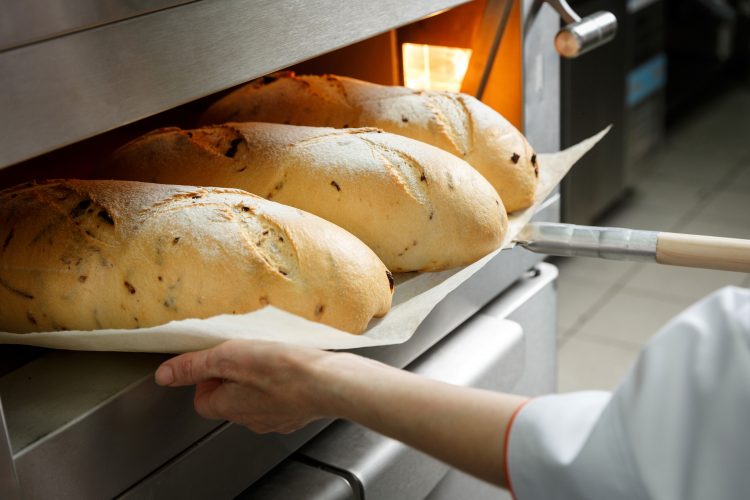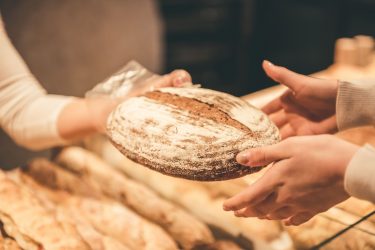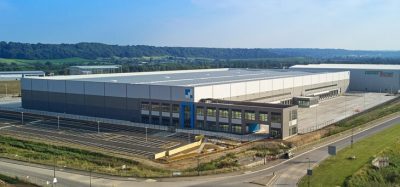No more excuses – one bakery’s mission to reach Net Zero
- Like
- Digg
- Del
- Tumblr
- VKontakte
- Buffer
- Love This
- Odnoklassniki
- Meneame
- Blogger
- Amazon
- Yahoo Mail
- Gmail
- AOL
- Newsvine
- HackerNews
- Evernote
- MySpace
- Mail.ru
- Viadeo
- Line
- Comments
- Yummly
- SMS
- Viber
- Telegram
- Subscribe
- Skype
- Facebook Messenger
- Kakao
- LiveJournal
- Yammer
- Edgar
- Fintel
- Mix
- Instapaper
- Copy Link
Posted: 10 February 2022 | Bethan Grylls (New Food) | No comments yet
New Food’s Editor interviews Fatherson’s Laurence Smith to find out how he intends to claim the title of UK’s first eco-friendly bakery and whether reaching Net Zero is feasible.


The global bakery market is anticipated to reach $457.4 billion by 2027,1 but the way the sector operates – alongside the entire agriculture and food production system – is in dire need of change.
Currently, the UK industrial bakery sector alone produces an approximate 2.5 million tonnes of baked goods per year. That requires around 2,000GWh of energy, which roughly produces 570,000 tonnes of CO2 annually.2
According to the UN Food and Agriculture Organization (FAO), our current systems are “failing to address the key challenges of our time, while millions still go hungry or malnourished”. The challenge is achieving a level of production that delivers to our pressuring demands from an environment that is, as the FAO describes, “seriously depleted”. It adds that this will be “impossible without profound change”.3
Ways manufacturers can be more sustainable
One British bakery playing its part in the sustainable mission is Fatherson – a company that aims to be one of the first eco-friendly bakers in the UK.
“Everything gets reused,” owner and MD, Laurence Smith, explained to New Food, “nothing goes to landfill; all of our plastic materials are 100 percent recycled and 100 percent recyclable. And, if we produce any food waste, we endeavour to use it in some way.”
To elaborate, he said: “We have a very strict quality control process in our business, whereby each stage is monitored – before the cakes go in the oven and when they come out. This way of working helps us to minimise how far down the food chain a product gets before it needs to be reworked or binned. Where possible, we try and reuse product that would otherwise be wasted; for example, if we rejected a batch of sponges, we’d use it to create treacle tarts.
“Of course, some finished cakes do end up in the bin when they cannot be used in other products, but what we aim to do is use that waste to create bio-gas and electricity.”


Will we see a push for local sourcing from consumers?
In fact, along with using renewable energy, Fatherson is also mindful of other ways it can enhance its factory’s efficiency levels. “One of the obstacles we encountered when I first joined was the size of our ovens – they were very small. By investing in larger equipment, we have improved our level of efficiency as we’re able to make more cake in a single oven.”
Of course, Smith recognised that the business was in a fortunate position compared to some other SMEs, in its ability to afford such machinery. Even so, there are still pinch points that Fatherson is battling due to cost and feasibility, such as transferring to an entirely electric fleet of vehicles. “Some of our delivery drivers will go out for eight hours a day. They can’t be stopping every half an hour to do a 15-minute charge in the vehicle, so we need to work with the vehicle providers to find a commercial solution.”
He continued: “Investing in equipment, in fleet and in the site itself, has a certain cost of entry. If you’re a larger business, it’s probably a smaller percentage of your turnover, so it’s perhaps easier for bigger companies to implement these things.”
Smith added, however, that while larger businesses have more disposable income and can arguably make a more significant global impact, they do encounter a lot of red tape, which can hinder progress.
He also pointed out that the collective power of small companies can be quite powerful. “If you have someone driving a particular vision and an ethos, then everybody in a smaller business hears that message first-hand and is able to get behind it.”
Hitting that Net Zero target
We have recently seen a number of companies – big and small – making announcements around their sustainability commitments and actions as we attempt to cross the Net Zero finish line.
Commenting on the ambitious timeframes that have been set for carbon neutrality, Smith said it’ll be challenging but not impossible; adding that whether you’re a conglomerate or a startup, the decisive factor is an appetite for change.
“If you put your mind to it and everybody within the supply chain gets behind it, then anything’s possible,” he contended.
In terms of where we go now, Smith believes the future is in locality, diet and renewable/efficient use of energy.
Fatherson already sources its ingredients from local suppliers, and Smith asserts that there’s no reason why the vast majority in the baking sector can’t do the same. “As we move forwards, I think there will be greater demand from consumers to source and buy locally anyway. A lot of ingredients used in bakery can be easily sourced in the UK.
“More people are looking at a flexitarian diet and we feel that plant-based could have a very positive impact within the industry; it’s an area we’re investigating more and more. We do have a couple of vegan products already in our range and they are very popular. The key thing to remember, especially within bakery, is not to lose sight of why people buy cake – it’s a sweet treat and therefore, whether it’s vegan or not, it must taste great.”
Envisioning his Net Zero bakery, Smith said he’d love for Fatherson to transition to solar-powered ovens and an electric fleet, adding that he hoped more consumers would walk to their local bakers in the future.
Perhaps we will see more bakeries investing in such innovations as the time to save the planet ticks down, but whether or not it’s realistic for consumers to walk and collect their bread and croissants is questionable – and totally dependent on what you have nearby.
What is for certain – whether someone nips to your bakers in person or not – is that purchasing decisions will be swayed by a company’s sustainability credentials. As I mentioned in a previous column, even the act of showing that you’re attempting to make change will help in this regard – consumers value transparency and honesty, and will remain loyal if they can see you are making the effort and have a clear idea on what that entails. Net Zero is not a journey that can be made overnight, and consumers appreciate that.
References
- globenewswire.com/news-release/2020/07/13/2061482/0/en/Global-Bakery-Products-Industry.html
- worldbakers.com/process/gary-tucker-sustainability-in-baking/
- fao.org/sustainability/en/
Related topics
Environment, Equipment, Food Waste, Processing, Sustainability









